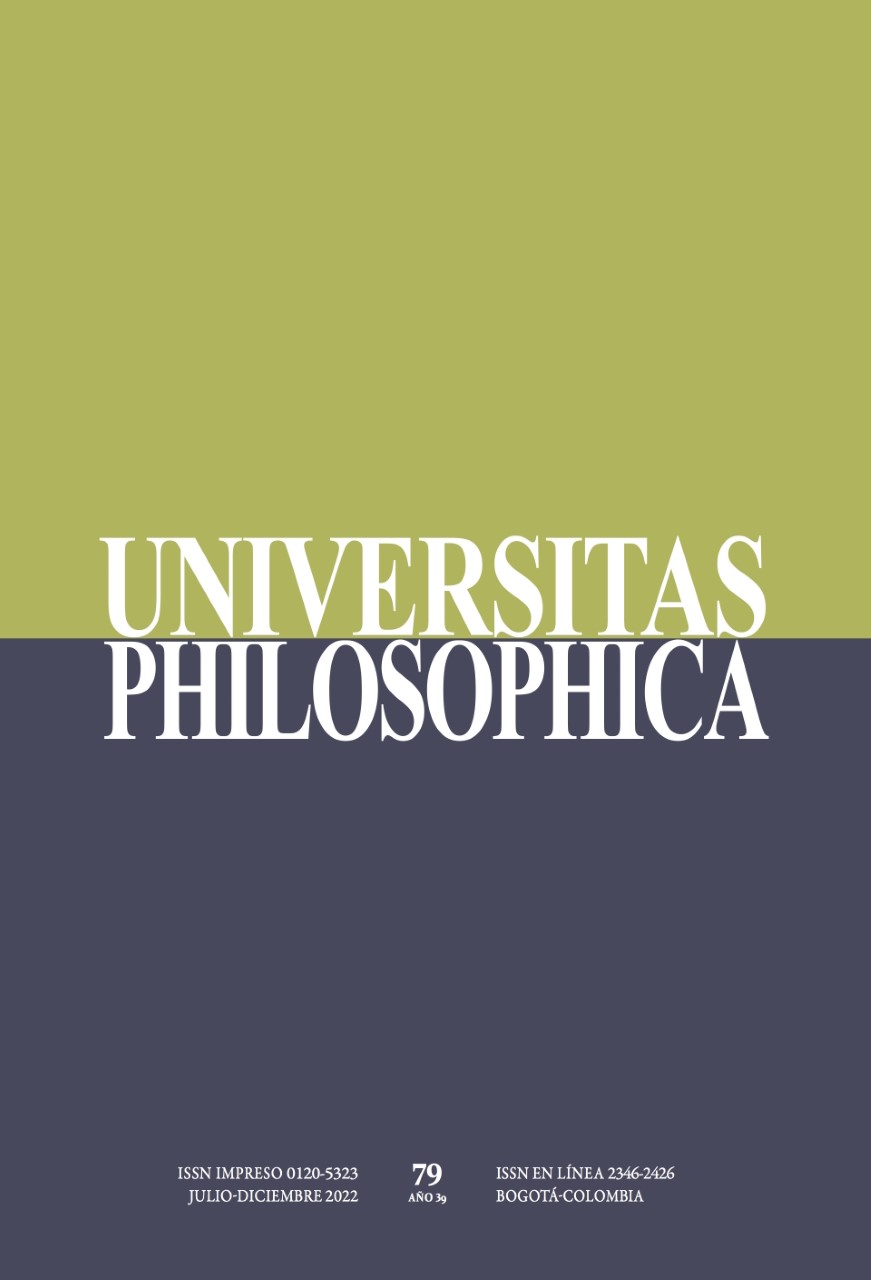Resumen
Este artículo comenta la dialéctica de “Lo absoluto” en la Ciencia de la lógica de Hegel. Nos demoramos aquí en los problemas que trabajamos, les damos suficientes vueltas a las distintas temáticas viéndolas desde varias ópticas, de manera que hagamos comprensibles asuntos muy áridos. El texto debería ser capaz de ayudar a absorber la riqueza y profundidad de los planteamientos presentes en la dialéctica de lo absoluto, la cantidad de conexiones que existen entre las secciones que aparece en esta sección densa e inagotable de la Lógica. A medida que se van comentando los temas que van apareciendo con el concepto de lo absoluto vamos destacando en qué sentido nuestra lectura de esta sección diverge de otras elaboraciones de la misma.

Esta obra está bajo una licencia internacional Creative Commons Atribución 4.0.
Derechos de autor 2022 Fernando Forero


